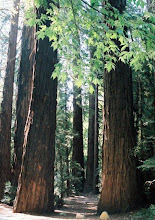(From my sermon Sunday)
There are times when the
events that happen outside of our community have the ability to affect us
deeply, especially when they are as tragic as the shooting early Friday morning
in Aurora, Colorado. The violence and evil shock us and we are left to
try and make sense of the chaos. We are left with questions.
For some
of those questions, there are armies of people already working to find the
answers. This kind of disaster is also a crime scene and there are many
kinds of law enforcement people doing their tasks to investigate, search out
and catalogue all the bits and pieces that are the evidence.
The media
is also searching for answers but in today’s world, that search is more like an
unorganized competition where getting an answer first sometimes seems more
important than getting it validated. They cluster around the scene trying
to get as close as they can to victims and their families and friends as well
as hounding anyone who knows or has had contact with the one did it.
With all
these people working, we soon know what happened, where and when, and then we
start knowing whom. The investigators are piecing together the answers to
how it happened. But there is one question left, the big one.
Why?
It’s a
huge question because it encompasses so much.
Why did the shooter do it? Why
this theater, this movie? Victims and families ask, why did this person
live and this person die?
We confront God with the biggest question: Why, God? Why do
you allow this happen?
Soon,
someone somewhere will say that this is all God’s punishment for our
godlessness or whatever sin is their pet peeve. It happened after
Oklahoma City, it happened after 9/11, and after hurricane Katrina. It’s not the
Gospel that Jesus teaches, but some people seem to find pleasure in using
tragedy to judge others.
Such
messages can be attractive because they seem to give an answer to that biggest
question. There is a reason that this happened and we are reassured that
God is in control. It is the same kind of comfort that people try to give
when someone we love has died. There is a reason. God is in
control.
If we can
blame someone or something, even God, then we are closer to making sure it
doesn’t happen to us. We like things to have a reason. It lessens
the chaos and confusion in our lives.
In Mark
6: 30-34, Jesus tries to take the disciples and himself away for rest from
their work, but the people see where they are going and by the time the boat
gets to the deserted place, a great crowd of people are already there, waiting
for Jesus.
They are
overwhelmed by the chaos in their lives, things they have no answers for and no
control over. They need help, they need answers, and they need love.
And Jesus has compassion for them. He sees they are like sheep
without a shepherd – meaning they have no one looking out for them, caring for
them, keeping them safe. So Jesus begins to teach and heal them.
Jesus
sees all these people who have followed them with all their needs and
questions, and reaches out. He looks on them with love and becomes their
shepherd.
They have
followed him out into the wilderness probably without a lot of preparation or
thought to simple things like where and how will they eat or find water. In fact, in
the verses following these, Jesus feeds them all, more than 5,000, with a small
boy's lunch. They have come with needs and Jesus cares for them.
If only
Jesus were here today, right? Wouldn’t that make things easier?
Doesn’t this last week just make you wish you could be in that crowd with
Jesus? We need Jesus too!
And Jesus
is here, right here, with us today, right now, in this place, with us and in
us. We are not alone. And he is here, teaching us too, giving us
his answers, and giving us hope.
Jesus
looks at us, with all our questions and doubts, with all our faults and
failings, our shortcomings, and our stubbornness, and holds us in love.
It is here. For you! Right now. And that is as true and
real as it gets. Jesus is here in love – for you.
But even when we don't have answers, we do have hope. For no matter what is happening around us,
we have the promise and hope that we are held in God’s love. And there is
nothing strong enough, or evil enough, or big enough, or bad enough to separate
us from that love. Nothing. Not lone gunmen, or terrorists, or evil
plots, or wars, or diseases, or the chaos of our lives.
God is
here. God is with you and stays with you. God goes with you in
love, whereever you go. And God loves you, forgives you, and gives you
peace, even when we can’t know or understand the whys of what happens
around us. God's love outlasts and outbests everything. Read Romans
8: 35-39.


